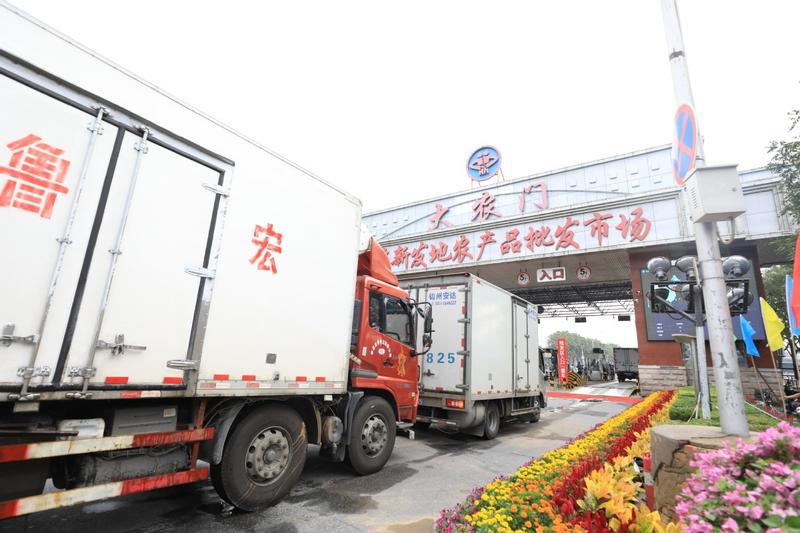 In this Aug 15, 2020 file photo, trucks loaded with fruit and vegetables drive through the Xinfadi market gate. (WANG CHENGMENG / CHINADAILY.COM.CN)
In this Aug 15, 2020 file photo, trucks loaded with fruit and vegetables drive through the Xinfadi market gate. (WANG CHENGMENG / CHINADAILY.COM.CN)
Xinfadi wholesale market, which supplies more than 80 percent of the capital's agricultural produce, has disposed all cold-chain food including seafood and frozen meat, according to a report by Beijing Daily on Wednesday.
On June 11, a patient was found to be associated with the Xinfadi wholesale market, which sells fruit, meat and vegetables in Beijing. That case broke the city's 56-day string of no new confirmed local cases
All cold storages have been disinfected and had their power cut off, the paper said.
The market will strengthen the management of cold storage to ensure their safety under the current COVID-19 epidemic condition.
ALSO READ: 9 local cases in Inner Mongolia among 21 fresh on mainland
The seafood market for nearby residents, which was owned by the Xinfadi wholesale market, has had its operations suspended.
The pork trading hall was not affected, according to market authorities.
In late October, the National Science Review published a research paper by medical authorities and universities saying cold-chain food contamination was a likely cause of the COVID-19 resurgence in Beijing in June.
The paper said Beijing's June cluster of novel coronavirus infections probably originated in high-risk overseas areas. It added cold-chain transportation could become a new route of transmission.
On June 11, a patient was found to be associated with the Xinfadi wholesale market, which sells fruit, meat and vegetables in Beijing. That case broke the city's 56-day string of no new confirmed local cases.
READ MORE: 'Epidemic situation related to Xinfadi under effective control'
The authorities immediately launched a major round of coronavirus tests for people who had been to the market, as well as for food items sold there.
Up to five salmon samples tested positive, including one sample whose unopened packaging was contaminated.


